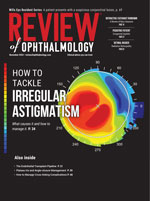I mention this not to wade into the ethical swamp of the separation of church and state on editorial and advertising, or the more nettlesome “sponsored content,” a hybrid of the two. (Our position on this appears at the bottom of every editorial page, anyway. If it’s our editorial content, we say so.)
My interest at the moment is more in how editors of different generations react to this ethical challenge. I think a lot of it is based in the environment and mores of your early training. Younger people in this business who come of age in the online, digital, social-media world where the lines are more blurred have very different perspectives on this from mine, which is closer to the Gutenberg printing press generation.
I’m not suggesting that ethics change from generation to generation, but your view of “normal” absolutely does; hence the ubiquitous phrase, the new normal.
Since I’ve never been a doctor or even played one on TV, I have no personal grounding to assess the ultimate question raised by our cover story this month, whether you can still make it as a general ophthalmologist. But I bring up the editorial/advertising issue to illustrate my contention that how you answer that question probably depends on your generation, on the world in which you cut your teeth.
If you’ve been in practice for, let’s say 20 years or more, the answer is no, a young person starting today could not possibly replicate what you did. But the good news is that if we had done this article 20 years ago, the same answer would apply. If we do it 20 years from now, same thing.
There are some very different practice models featured in our cover story this month (p. 30), though each of the physicians would self-describe as a generalist. Location, availability of specialty care and the level of training of the physicians described are a key part of how they practice today, and that will always be true.
But legislation, technology, insurance, reimbursement, changing demographics, new practice models, new classes of health-care providers and a litany of other influences will combine to make “doing it all,” as the cover question proposes, mean different things to each new generation of ophthalmologists.
The truth is, you never could do it all. And the truth is, of course you can still do it all.
 |



